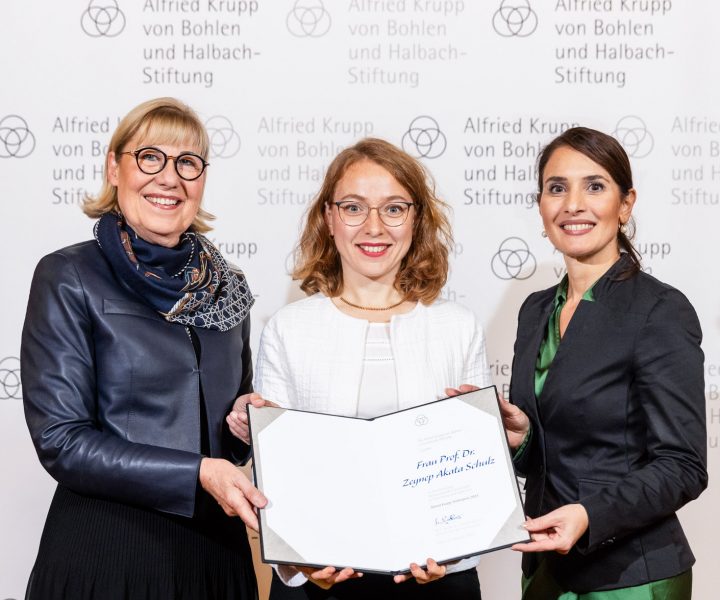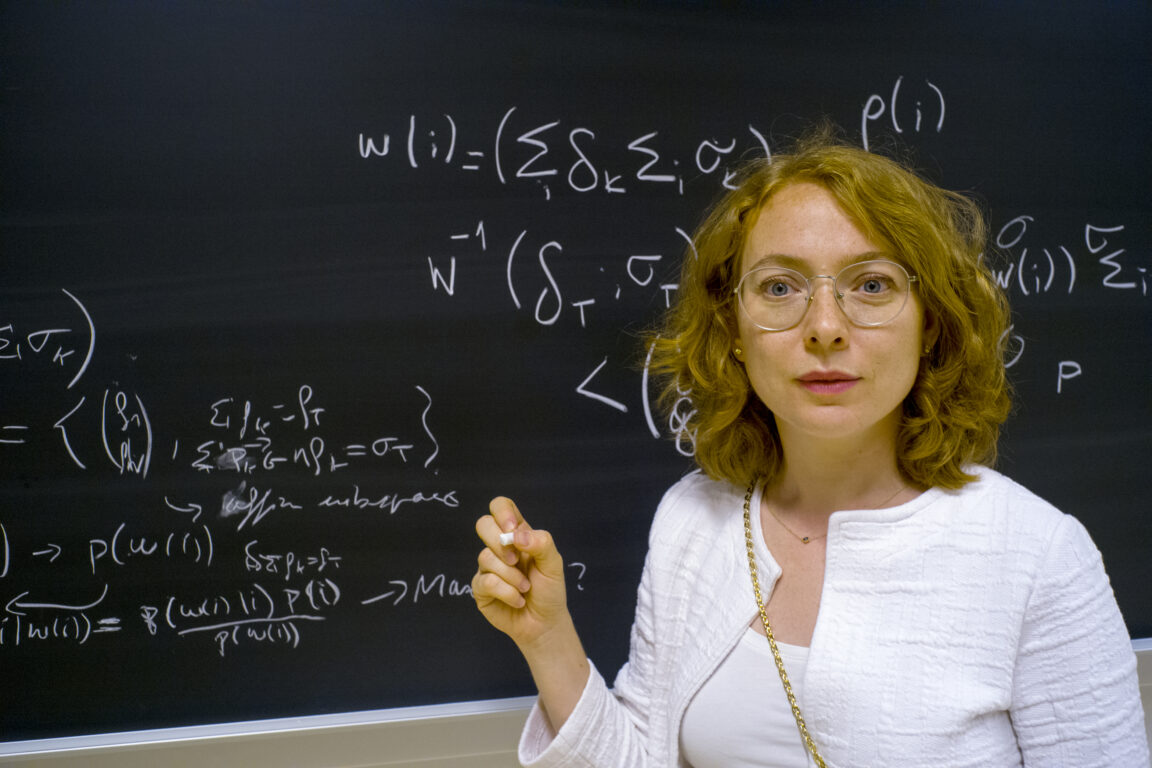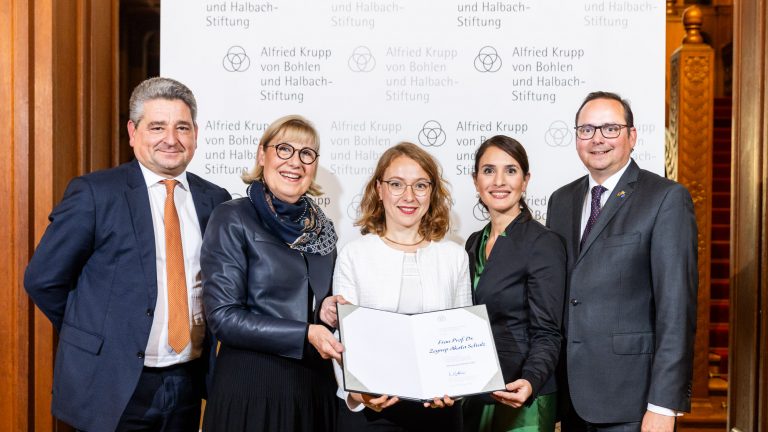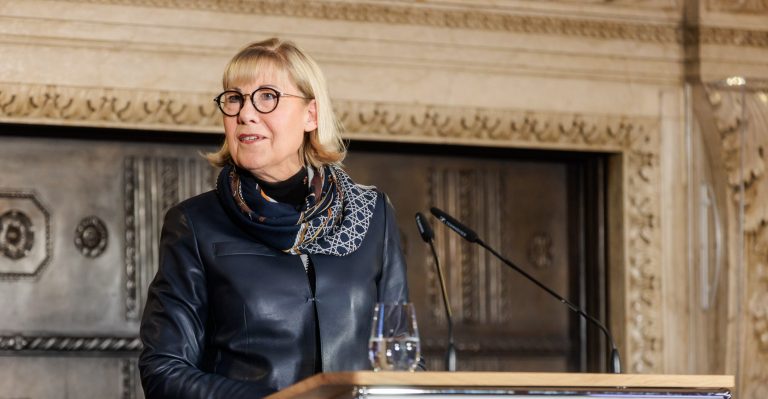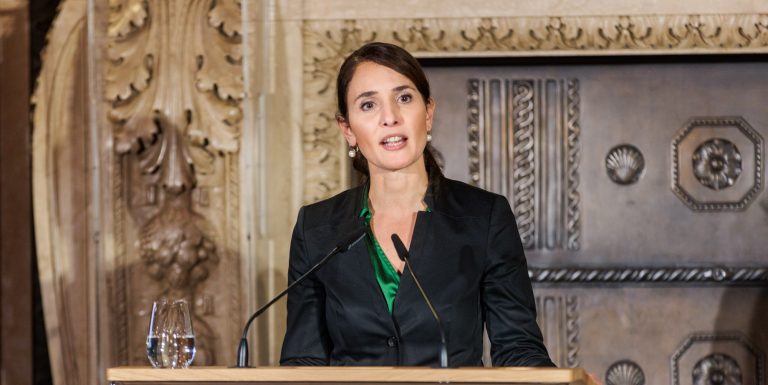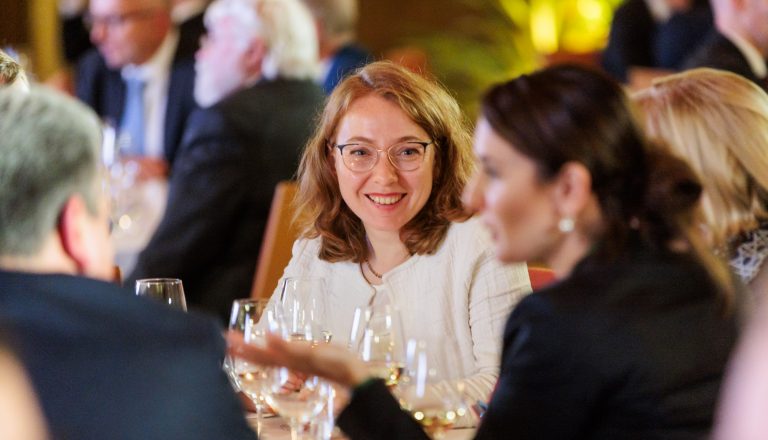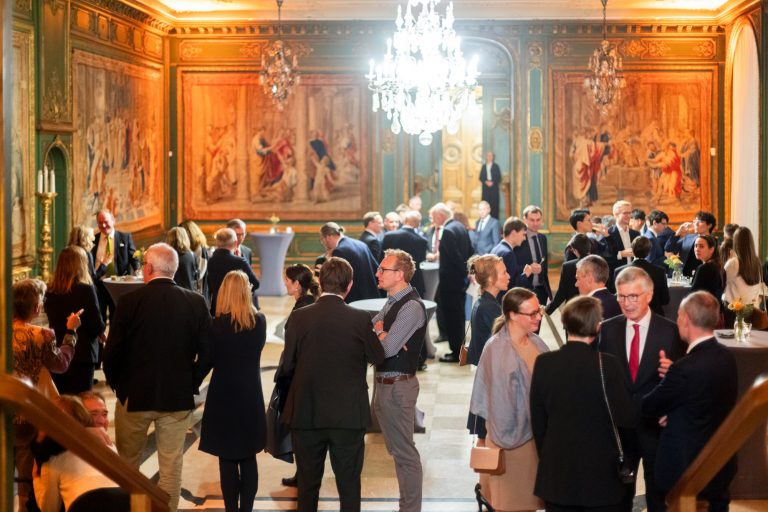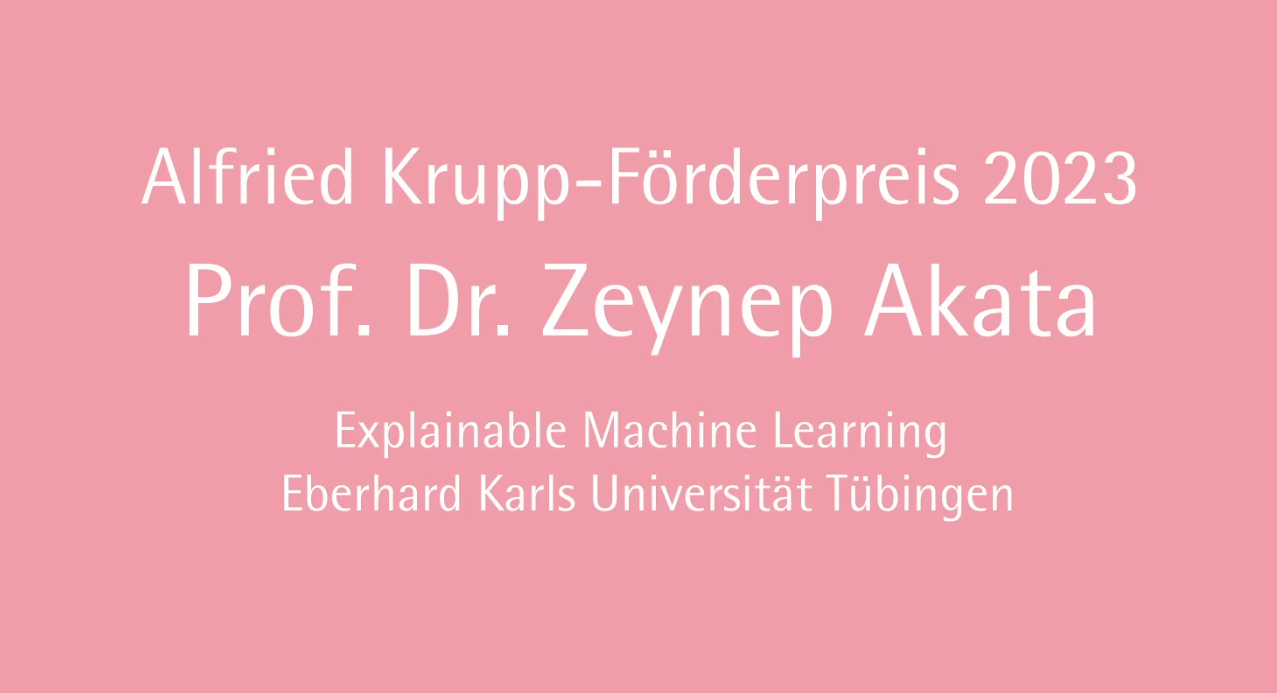The winner of the 2023 Alfried Krupp Prize: Prof. Dr. Zeynep Akata Schulz
Prof. Dr. Zeynep Akata Schulz (37), born in Turkey, was appointed to the professorship for Explainable Machine Learning at the Faculty of Mathematics and Natural Sciences at the University of Tübingen (Germany) in 2019, which was established as part of the Cluster of Excellence “Machine Learning: New Perspectives for Science”. She studied Technical Informatics at Trakya University in Turkey, Media Informatics at RWTH Aachen University in Germany and received her doctorate from the University of Grenoble in France. After completing her doctorate, she researched machine vision and learning as a postdoctoral researcher at the Max Planck Institute for Informatics in Saarbrücken (Germany) from 2014 to 2017. In addition, she was a visiting researcher at the University of California in Berkeley (USA) at the time. Between 2017 and 2019, Akata worked as both an assistant professor as well as scientific director of the UvA-Bosch Delta Lab at the University of Amsterdam (Netherlands), where she focussed on the foundations of deep learning. She was also head of research at the Max Planck Institute for Informatics in Saarbrücken (Germany).
The work of Zeynep Akata Schulz has already been recognised with high-ranking grants and awards, including the EVCA Young Researcher Award (2022), the German Pattern Recognition Award of the German Society for Pattern Recognition (2021), the “ERC Starting Grant” of the European Research Council (2019) and the Lise Meitner Award for Excellent Women in Computer Science of the Max Planck Institute for Informatics (2014). She is regularly invited as a keynote speaker, for example at the UAI Conference, the Helmholtz AI Conference, University College London, Facebook AI Research and Google. Zeynep Akata Schulz is a member of the Tübingen AI Centre at the University of Tübingen (Germany) and at the Max Planck Institute for Intelligent Systems, among other things.

